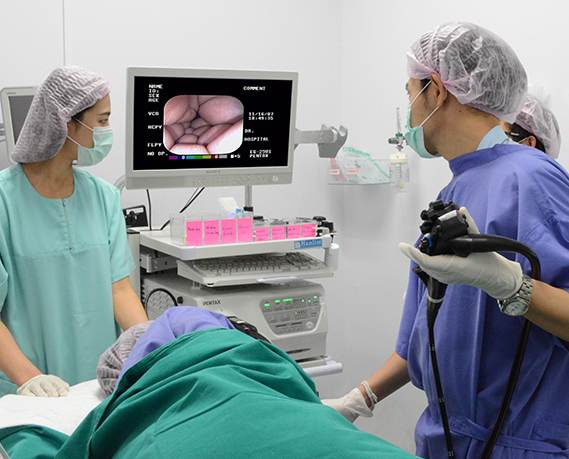A Pope Who Confronts the Machines
In his very first official address, Pope Leo XIV rang the alarm bell over the unchecked rise of artificial intelligence. Though not yet formally inaugurated, the new pontiff made it clear that one of the defining missions of his papacy would be the protection of human dignity in the midst of a technological revolution.
Assuming the mantle of leadership over the Catholic Church—an institution with more than a billion faithful—the pope did not mince words: he declared war on artificial intelligence. More precisely, he declared war on dehumanizing, morally unanchored AI development.
This is more than just a symbolic gesture. Pope Leo’s speech marks the beginning of a new era: the intersection of digital civilization and Christian social teaching. The real question is no longer whether AI will transform our lives, but who will provide a moral compass for this algorithmic age.
The Church and Technology – A Historical Context
The Vatican has often been criticized for lagging behind the modern world when addressing pressing social issues. It wasn’t until the 1960s that Mass was no longer celebrated exclusively in Latin. However, history shows that the Church has always sought to give moral guidance in times of profound societal change.
In 1891, Pope Leo XIII issued the landmark social encyclical Rerum Novarum in response to the upheavals of the First Industrial Revolution. It remains a cornerstone of Catholic social teaching, advocating for workers’ rights, social justice, and the moral duties of both laborers and employers.
By choosing the name “Leo,” Pope Leo XIV draws a direct parallel between his own time and that of his namesake. He redefines the “social question” of our era—not in terms of factories and machines, but in terms of neural networks and machine learning. And the central question today is this: What happens to humanity when decisions are made by algorithms, not people?
Pope Leo’s First Speech: A Message to the People of the Machine Age
At his first official meeting with the College of Cardinals, as reported by CNN, Pope Leo XIV stated:
“The development of AI is one of the greatest challenges of our time. It touches at the core of human dignity, justice, and the meaning of work.”
This statement is more than just opinion—it is the early foundation of a future magisterial stance. The pope warns: without moral boundaries, AI has the potential to erode the very pillars of human civilization.
Following in Pope Francis’ Footsteps – The Ethical Framework of AI
Pope Leo XIV does not enter this debate alone. His predecessor, Pope Francis, had long expressed concern over the ethical risks associated with artificial intelligence. In his writing Antiqua et nova, which explored the relationship between machine and human intelligence, Francis wrote:
“Technological progress must serve human dignity, not endanger it.”
At the 2024 G7 Summit, Pope Francis addressed the issue of AI directly, calling it the dawn of a “cognitive-industrial revolution.” He warned that without careful regulation and ethical guidance, AI could dramatically worsen global inequality—between nations, classes, and individuals.
In his final public address at the World Economic Forum in Davos, he said:
“In the relentless pursuit of efficiency, we too often neglect human dignity and fraternity.”
The Vatican’s Message to the World: Technology Is Not the Enemy—Immoral Development Is
Let one thing be clear: Pope Leo XIV does not oppose technological progress. The Church is not a Luddite institution. Rather, it aims to provide a moral framework and a humanistic counterbalance. The goal is to promote AI development that is just, ethical, and centered on the common good.
Thus, the Pope is not condemning AI itself—he is declaring war on systems that reduce human beings to data points in opaque, automated structures.
The Core Values at Risk: Dignity, Justice, Work
The three values Pope Leo emphasized—human dignity, justice, and labor—are also the three major areas where AI presents deep societal challenges.
1. Human Dignity
Many AI systems are black boxes, making decisions without transparency or accountability. Technologies like deepfakes, biometric surveillance, and social credit systems directly threaten civil liberties and personal freedom.
2. Justice
AI often amplifies existing societal biases. Discriminatory algorithms in recruitment, loan approval, and policing can embed structural injustice into our institutions.
3. Work
Automation is radically reshaping labor markets. While new jobs are being created, many low-skill or repetitive roles are vanishing. This leads to economic displacement and deepens the gap between those who can and cannot adapt to the digital age.
A Digital Encyclical in the Works? – Sources Hint at “Nova Rerum”
According to Vatican insiders, Pope Leo XIV is preparing a major social encyclical under the working title Nova Rerum (“On New Things”). Modeled on Rerum Novarum, it aims to provide a comprehensive response to the ethical, political, and spiritual dimensions of life in the AI age.
Expected topics include:
-
Digital exclusion and access inequality
-
Moral accountability in algorithmic systems
-
The limits of machine decision-making
-
The Church’s role in technological education
Catholic Ethics vs Silicon Valley Realities
Silicon Valley often operates under the mantra: “Build first, regulate later.” The Catholic Church, on the other hand, acts with a long view: “Discern first, act later.” The difference is not about speed but purpose.
This isn’t just a technological debate—it’s an anthropological one: What does it mean to be human in an age of machines?
The Papacy of Techno-Morality and Global Mission
The Vatican is stepping into uncharted territory. For the first time, the papacy is positioning itself as a global moral voice in the age of digital disruption. Pope Leo XIV is not simply offering theological commentary—he is building a vision for the future of civilization.
His message: We must not stop AI. We must anchor it to the dignity of the human person. Without moral boundaries, technology becomes a tool of power, not progress.
Conclusion: In the Age of Algorithms, the Gospel Still Has a Voice
Pope Leo XIV may shape the history of our time—not through doctrinal reforms, but through a moral and societal vision. As the world struggles to make sense of AI’s power, the Church is stepping in—not to resist progress, but to protect the soul of humanity.
This pope is not against the machine—he is fighting for the human behind it.
Image(s) used in this article are either AI-generated or sourced from royalty-free platforms like Pixabay or Pexels.
Did you enjoy this article? Buy me a coffee!






